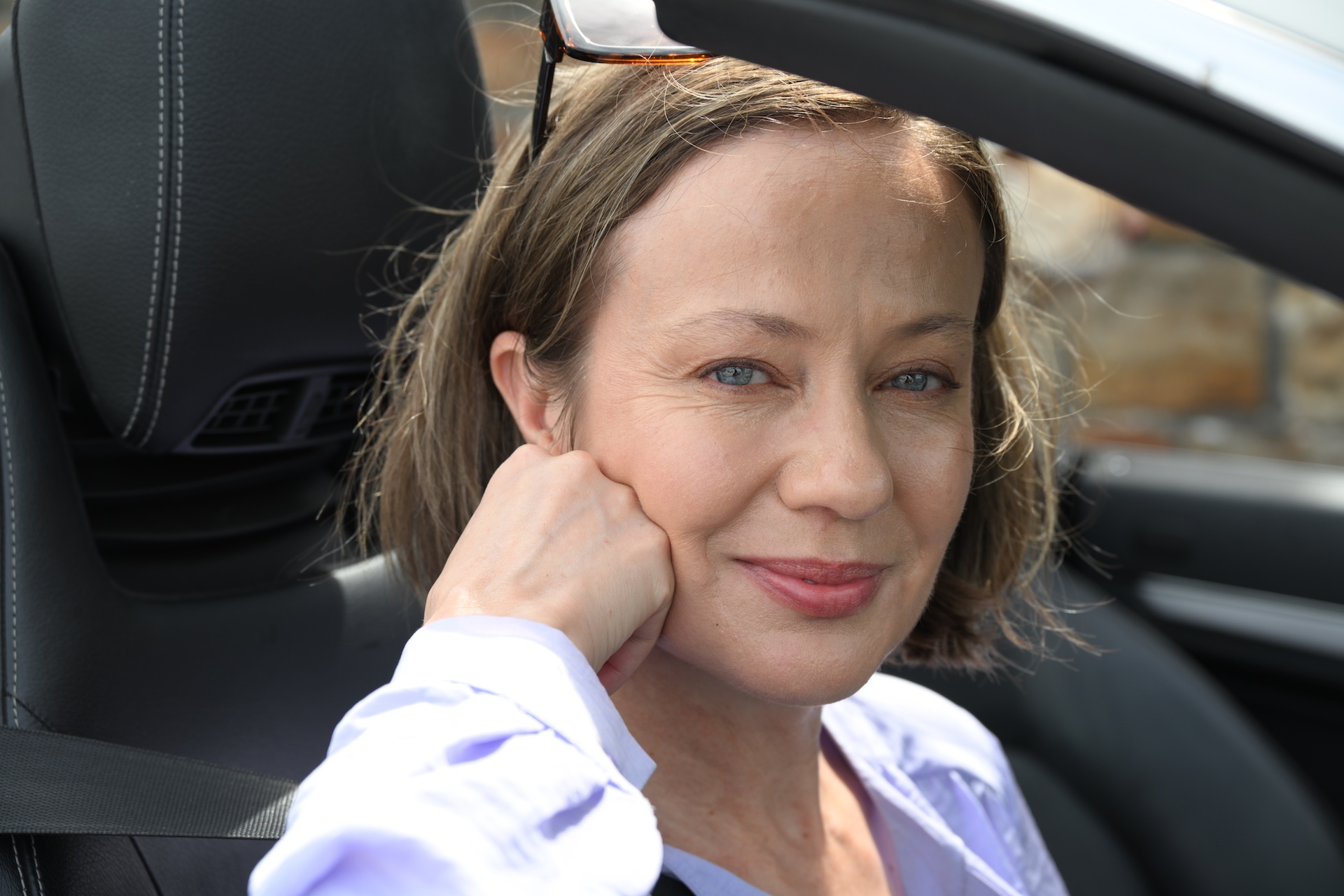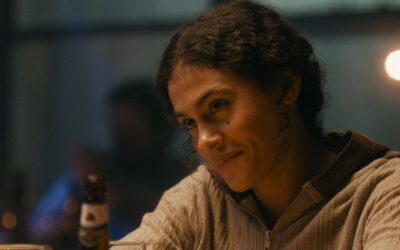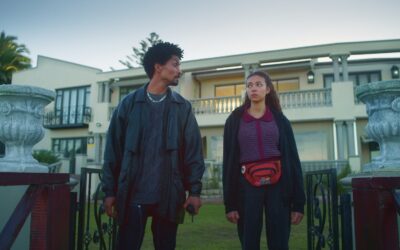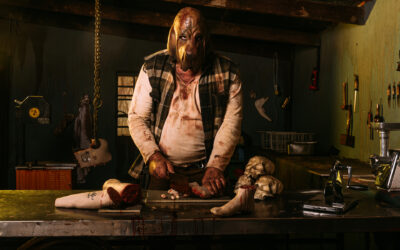Die Dekonstruksie van Retta Blom – “Ek sien ’n blom.”
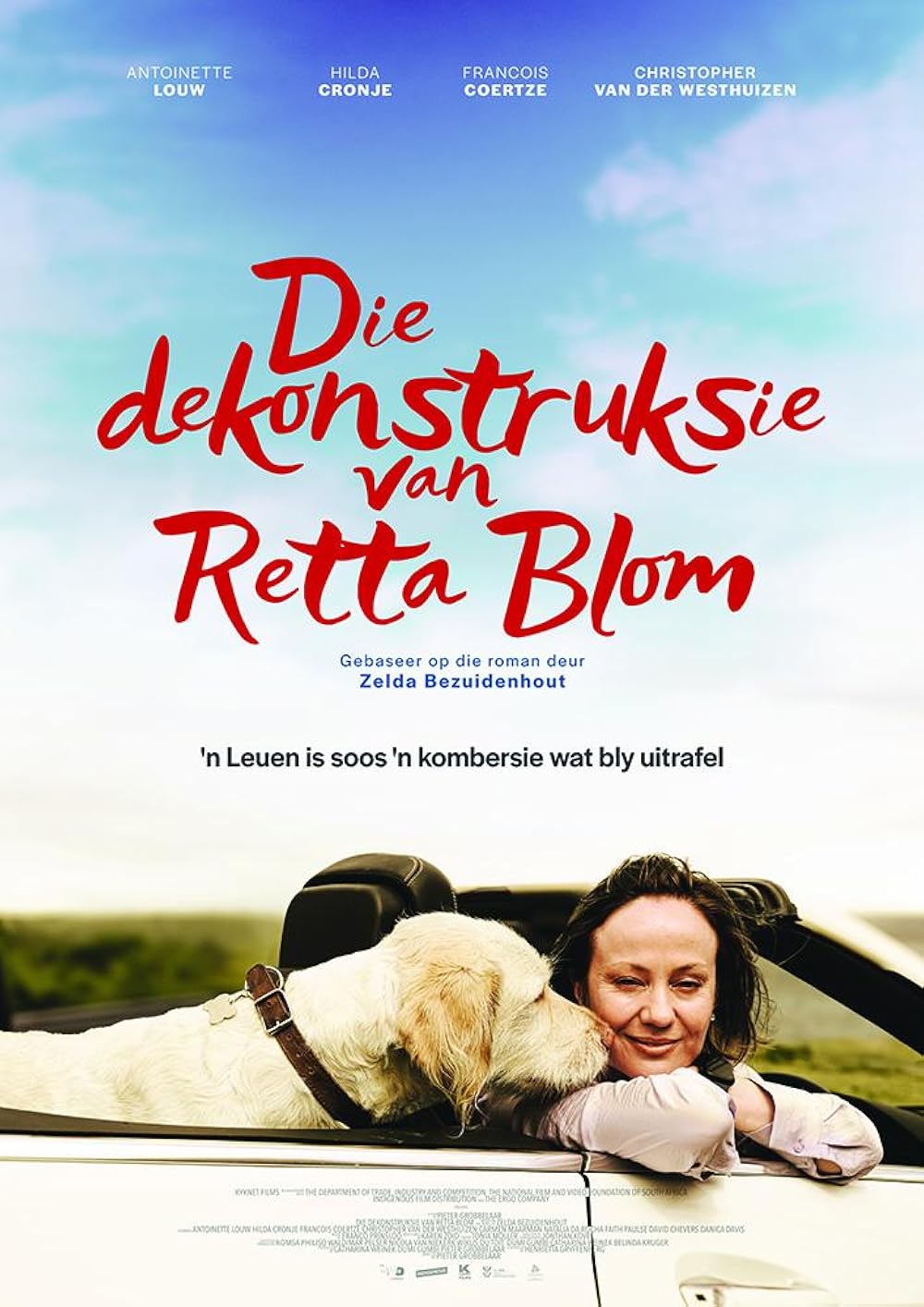
Review
“Ek sien ’n blom.” This quote, from the long-awaited film, based on Zelda Bezuidenhout’s beloved novel describes how the main character, Retta Blom, may be insecure about herself in her late fourties, but others see her potential to bloom.
Die Dekonstruksie van Retta Blom is a delicate, humorous, and emotional Afrikaans film that will touch every viewer. Based on Zelda Bezuidenhout’s popular novel, the film tells the story of Retta — a typical housewife who thrives on order, cleanliness, and the illusion of a perfect life. She quickly discovers that this life is just that: an illusion. Retta suspects her husband is having an affair with another woman, and as she uncovers more about his secret life, her world begins to crumble around her.
However, the film is not a typical drama — you laugh, you cry, you gasp for your breath. Retta doesn’t just lose control; she begins to deconstruct herself. In that space of sadness, betrayal, and self-examination, she discovers who she truly is. It’s not just a story of loss, but of what is found when everything is broken down — or rather, deconstructed.
Antoinette Louw is undoubtedly the heart of the film. Her portrayal of Retta is layered, honest, and full of subtle details. She makes us care for Retta — not because she is perfect, but because she is herself. The supporting cast also adds to the richness of the story. Each character plays a role in Retta’s unravelling and rebuilding. There’s a tenderness in how even the most difficult relationships are portrayed, especially the strong chemistry between her and her friend, played by Hilda Cronje.
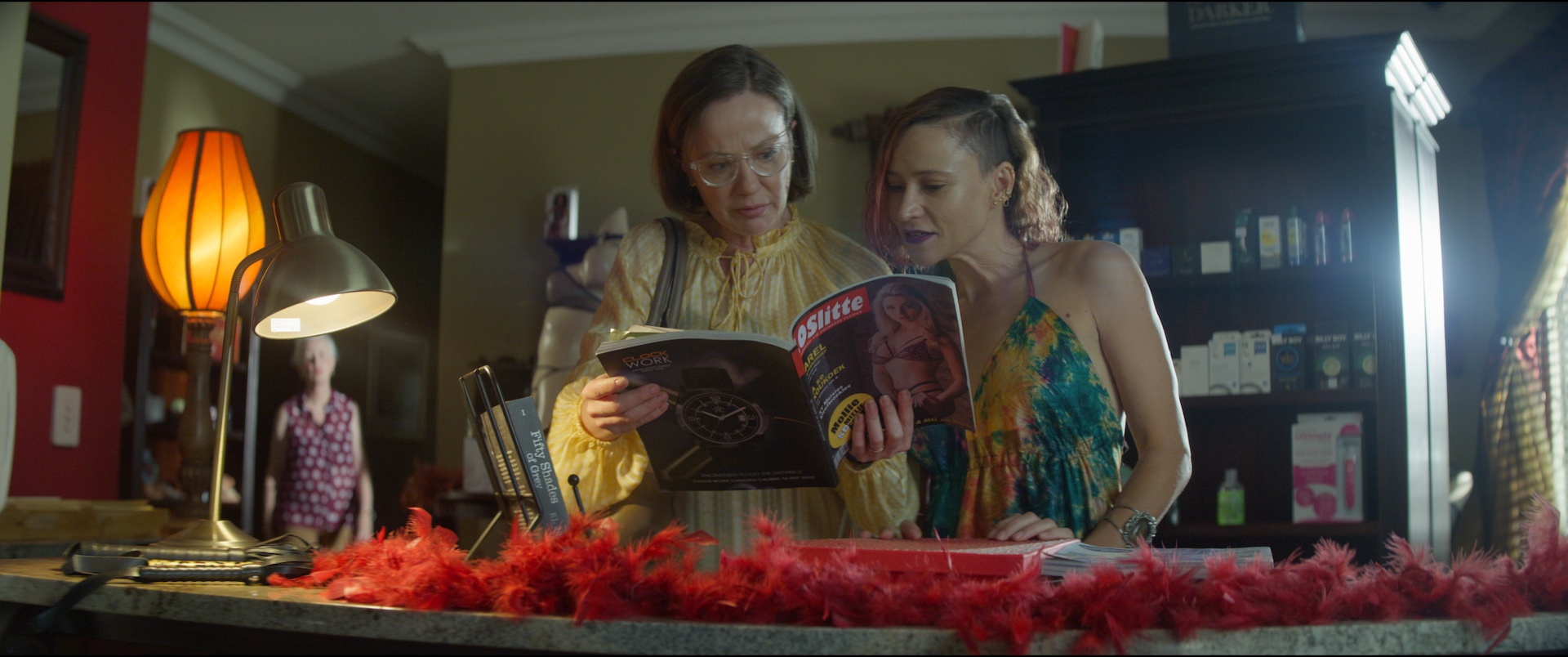
Pieter Grobbelaar’s direction, combined with Henriëtta Gryffenberg’s screenplay and Hannes Oosthuizen’s production design, makes for an exceptional team that captures the essence of the novel in cinematic form. The tone is perfectly balanced: light moments of humour are interwoven with deep emotion.
For viewers who have ever found themselves in the role of “the perfect housewife” or “perfect house husband”, this film will resonate deeply. It touches on themes such as identity, social expectations, and the inner journey to self-acceptance.
Ultimately, Die Dekonstruksie van Retta Blom is more than just a film — it is a quiet, moving journey toward truth. A beautiful and meaningful viewing experience that lingers long after the credits roll, like a soft, comforting blanket.
Who knows — maybe it’s time for your own deconstruction?
Production Information
Running Time
95 min
Writer and Director
Henriëtta Gryffenberg | Pieter Grobbelaar
Website
Screens
∞
Age Restriction
16
Actors
Antoinette Louw, David Chevers, Hilda Cronje en Francois Coertze
Rating
4/5
Box Office
23 May 2025

Written by Chanté Steyn
More Reviews
Hunting Jessica Brok: A South African action heroine that makes Hollywood blush
Hunting Jessica Brok is a high-octane South African action film about a former elite soldier (Danica Jones) forced to confront her violent past when a sadistic enemy (Richard Lukunku) returns for revenge. Packed with explosive action, brutal combat, slick visuals and standout performances, Alastair Orr’s film rivals Hollywood’s best. A ruthless, adrenaline-fuelled thriller.
Finding Optel – Optel may be gone, but the humour certainly isn’t!
Finding Optel is a heartfelt South African comedy-drama about a teenage girl’s quest to find a missing dog — and herself. Filled with humour, emotion, and vibrant visuals, this feel-good film by Jesse and Michaela Joy Brown offers a fresh look at community, family, and healing.
Bloedhond – Delightfully scary entertainment for Halloween month
Bloedhond is a bloody, suspenseful Afrikaans horror film packed with jump scares, dark humour and shocking twists – perfect for Halloween, featuring standout performances by Cindy Swanepoel, Zak Hendrikz and Kevin Peyper, and now streaming on eVOD.

Courses
Acting
Directing
Sound
Cinematography
Producing

